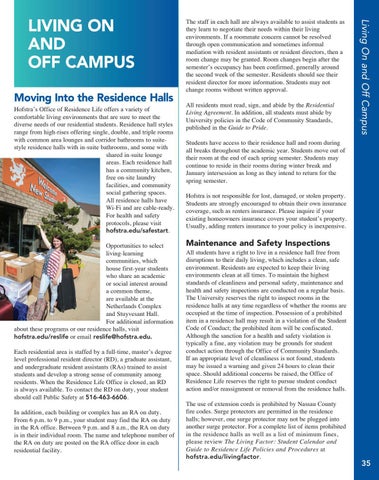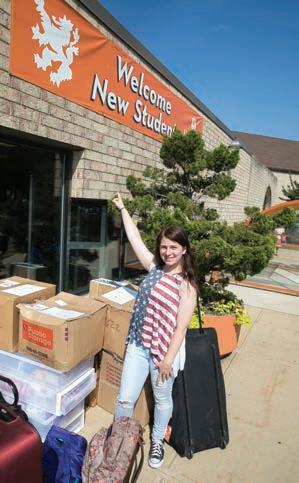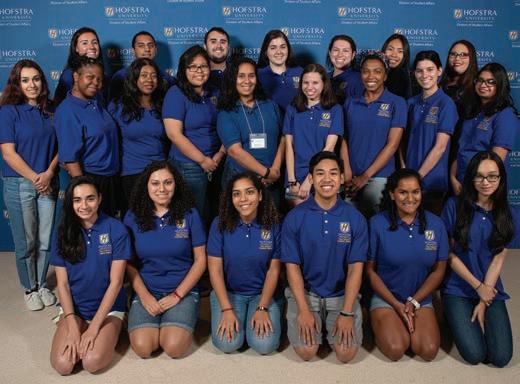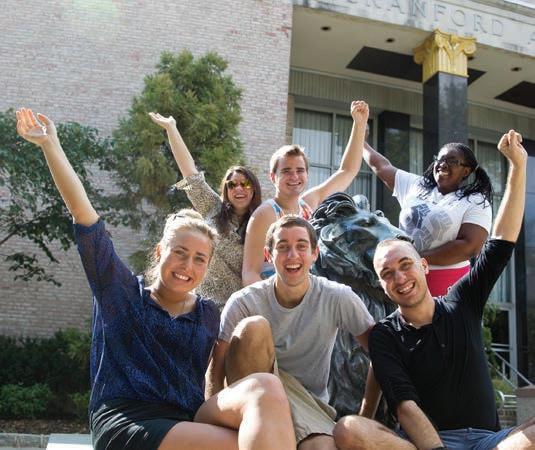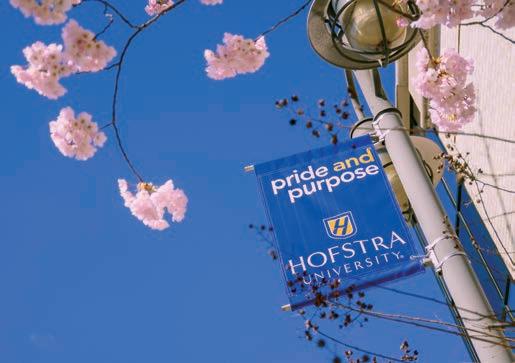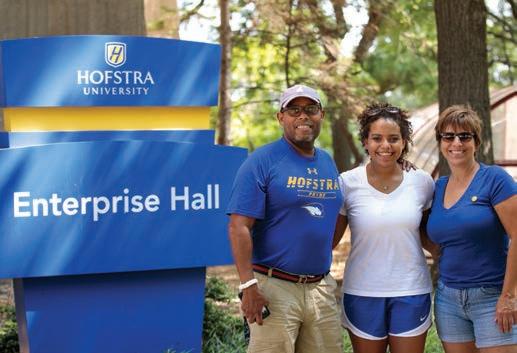Moving Into the Residence Halls
Hofstra’s Office of Residence Life offers a variety of comfortable living environments that are sure to meet the diverse needs of our residential students. Residence hall styles range from high-rises offering single, double, and triple rooms with common area lounges and corridor bathrooms to suitestyle residence halls with in-suite bathrooms, and some with shared in-suite lounge areas. Each residence hall has a community kitchen, free on-site laundry facilities, and community social gathering spaces. All residence halls have Wi-Fi and are cable-ready. For health and safety protocols, please visit hofstra.edu/safestart. Opportunities to select living-learning communities, which house first-year students who share an academic or social interest around a common theme, are available at the Netherlands Complex and Stuyvesant Hall. For additional information about these programs or our residence halls, visit hofstra.edu/reslife or email reslife@hofstra.edu. Each residential area is staffed by a full-time, master’s degree level professional resident director (RD), a graduate assistant, and undergraduate resident assistants (RAs) trained to assist students and develop a strong sense of community among residents. When the Residence Life Office is closed, an RD is always available. To contact the RD on duty, your student should call Public Safety at 516-463-6606. In addition, each building or complex has an RA on duty. From 6 p.m. to 9 p.m., your student may find the RA on duty in the RA office. Between 9 p.m. and 8 a.m., the RA on duty is in their individual room. The name and telephone number of the RA on duty are posted on the RA office door in each residential facility.
The staff in each hall are always available to assist students as they learn to negotiate their needs within their living environments. If a roommate concern cannot be resolved through open communication and sometimes informal mediation with resident assistants or resident directors, then a room change may be granted. Room changes begin after the semester’s occupancy has been confirmed, generally around the second week of the semester. Residents should see their resident director for more information. Students may not change rooms without written approval. All residents must read, sign, and abide by the Residential Living Agreement. In addition, all students must abide by University policies in the Code of Community Standards, published in the Guide to Pride.
Living On and Off Campus
LIVING ON AND OFF CAMPUS
Students have access to their residence hall and room during all breaks throughout the academic year. Students move out of their room at the end of each spring semester. Students may continue to reside in their rooms during winter break and January intersession as long as they intend to return for the spring semester. Hofstra is not responsible for lost, damaged, or stolen property. Students are strongly encouraged to obtain their own insurance coverage, such as renters insurance. Please inquire if your existing homeowners insurance covers your student’s property. Usually, adding renters insurance to your policy is inexpensive.
Maintenance and Safety Inspections
All students have a right to live in a residence hall free from disruptions to their daily living, which includes a clean, safe environment. Residents are expected to keep their living environments clean at all times. To maintain the highest standards of cleanliness and personal safety, maintenance and health and safety inspections are conducted on a regular basis. The University reserves the right to inspect rooms in the residence halls at any time regardless of whether the rooms are occupied at the time of inspection. Possession of a prohibited item in a residence hall may result in a violation of the Student Code of Conduct; the prohibited item will be confiscated. Although the sanction for a health and safety violation is typically a fine, any violation may be grounds for student conduct action through the Office of Community Standards. If an appropriate level of cleanliness is not found, students may be issued a warning and given 24 hours to clean their space. Should additional concerns be raised, the Office of Residence Life reserves the right to pursue student conduct action and/or reassignment or removal from the residence halls. The use of extension cords is prohibited by Nassau County fire codes. Surge protectors are permitted in the residence halls; however, one surge protector may not be plugged into another surge protector. For a complete list of items prohibited in the residence halls as well as a list of minimum fines, please review The Living Factor: Student Calendar and Guide to Residence Life Policies and Procedures at hofstra.edu/livingfactor.
35 35
